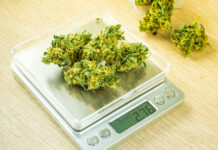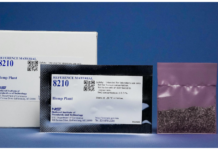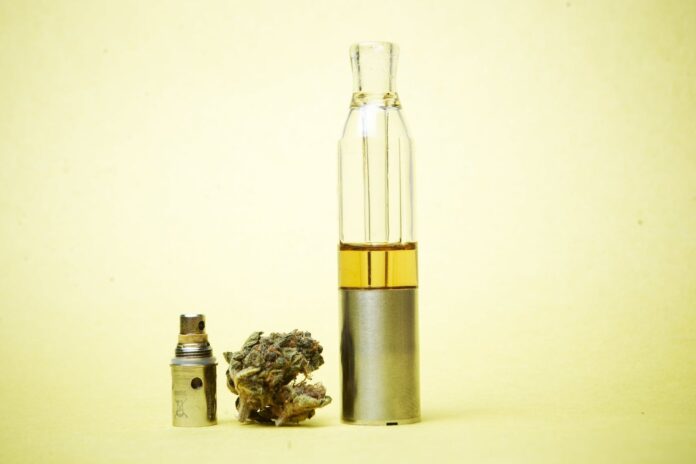The rapid growth of the cannabis industry and the complicated legal status of tetrahydrocannabinol (THC) have created unique conditions for entrepreneurs, and their innovation has brought a new product to the marketplace. Delta 8 THC or ∆8-THC, a hemp extract with THC levels under the federal legal limit, is being infused into an array of consumable products. Delta 8 products are popping up on the shelves of convenience stores, and online retailers are quickly growing in numbers to keep up with the market’s demand.
Unlike Delta 9 THC products, which can only be sold by state-licensed dispensaries, delta 8 is both manufactured and sold without any regulatory standards. Health experts have raised concerns about the dangers of consuming unregulated hemp products, but the popularity of this isomer of delta 9 and other novel cannabinoids has continued to grow.
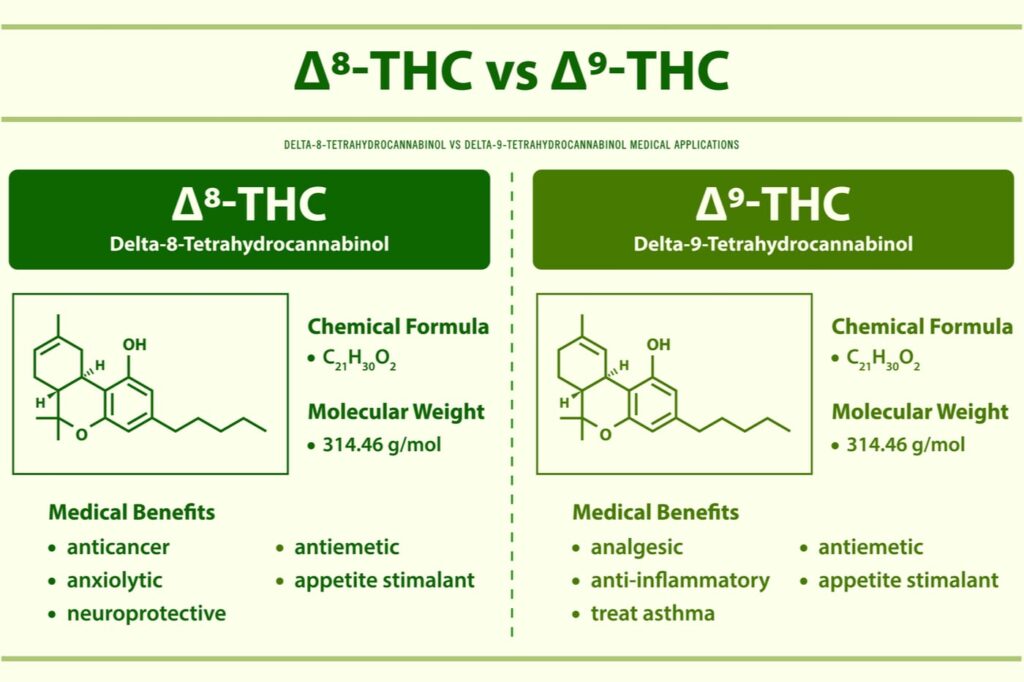
Delta 8 THC vs Delta 9 THC
Delta 8 cannabis products are now sold online, in smoke shops, and at gas stations, while delta 9 cannabis products are only sold to consumers through state-licensed dispensaries. When most people talk about marijuana, they are referring to delta 9 THC products. Both types of THC are naturally found in cannabis plants. They are similar in chemical structure and they both produce psychoactive effects when consumed.
However, delta 8 contains significantly lower levels of THC than delta 9. Under current federal law, a cannabis plant with a THC level higher than 0.3 percent is considered a Schedule I controlled substance. Delta 8 is available in some states without legalized recreational marijuana because the THC content is lower than 0.3 percent.
Scientists believe the psychoactive components of THC may be created by the double bond in their chemical structure. The double bond on delta 8’s carbon chain occurs on its eighth carbon, while the double bond occurs on the ninth carbon of delta 9. Scientists have also found that the human body’s cannabinoid receptors have a harder time binding with delta 8 THC than delta 9 THC. This is likely why delta 8 is a much less potent form of THC.
For those who regularly consume THC products, or delta 9, the effects from delta 8 may feel very mild. Those who are new to cannabis may experience much stronger effects. However, each person’s body chemistry binds to THC differently and there is no way to accurately predict a new cannabis consumer’s reaction to any type of THC product. Those who consume delta 8 have generally reported the same benefits and side effects as delta 9; such as pain relief, mild euphoria, dry mouth, and the munchies. Some say delta 8 provides them with a smoother, more energizing high than delta 9, while others say they hardly feel any effects at all.
Much like the cannabis industry as a whole, the legal status of this new cannabinoid is hazy. A few years ago, the United States Congress legalized hemp in the 2018 Farm Bill, making the production of delta 8 federally permissible. However, federal agencies have adamantly pushed back on the policy. The Drug Enforcement Administration (DEA) insists the cannabinoid be classified as a Schedule I controlled substance, and the Food and Drug Administration (FDA) has issued warnings about the risks of consuming delta-8-tetrahydrocannabinol.
Neither the DEA nor the FDA has the power to override the legality of decisions made by the U.S. Congress, but the legalization of delta 8 is surely not supported by the federal government as a whole. States also had mixed reactions to the 2018 Farm Bill. In fact, eleven states have explicitly banned the cannabinoid, but many states have yet to specifically address its legal status.
Because delta 8 has a THC content that is under the federally-approved levels, it is largely unregulated in its production and distribution. Neither CBD products nor delta 8 products are required to pass any sort of quality test before they are approved for sale.
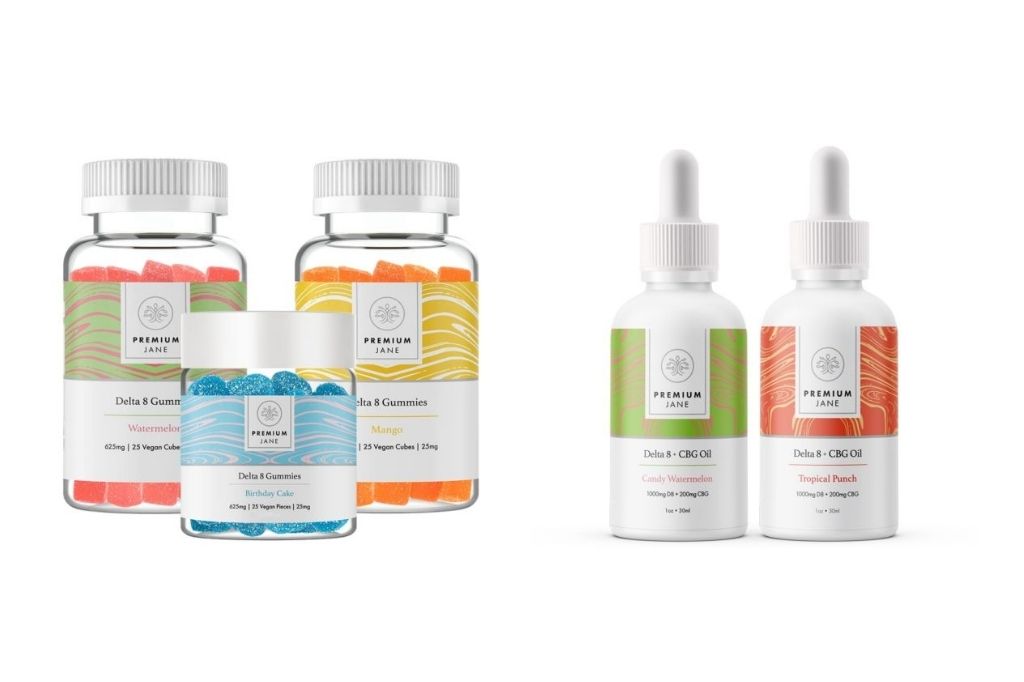
Types of Delta 8 THC products
Delta 8 products look similar to state-regulated THC products found in dispensaries. Some businesses, like PremiumJane, primarily carry hemp-derived CBD products but added ∆8-THC products to their inventory as it gained popularity. Other businesses, like Delta Extrax, exclusively sell products infused with extracted delta compounds. Delta Extrax is also a company that has started to sell delta 10 products.
You can find delta 8 products in the variety of forms listed below.
- Edibles
- Vaporizers
- Infused Hemp Flower
- Oils and tinctures
- Topicals
- Beverages
- Capsules
Concerns Regarding Unregulated Delta-8
Numerous health professionals and cannabis experts have raised concerns about the latest form of THC to hit the shelves because it is an unregulated substance that is not held to any standards by a third party. There is no guarantee that any ∆8-THC vape cartridges you find at a smoke shop are accurately labeled nor tested for consumer safety. Experts have raised further concerns about the production process for this form of THC product on the market. Delta 8 naturally occurs in cannabis plants, but only in very small amounts. In order to produce commercial quantities of delta 8, companies are synthetically manufacturing it from hemp-derived cannabidiol (CBD).
Studies have shown that naturally-occurring cannabis is generally safe to consume, while synthetically produced cannabis products are created with solvents that are toxic to the human body. A report published by the U.S. Cannabis Council in 2021 revealed a number of harmful compounds present in delta 8 products on the market, such as lead, copper, methanol, and acetone. In their report, they described unregulated delta 8 as a “rapidly expanding crisis.” The FDA also warns of the health risks associated with consuming this cannabinoid, highlighting the hospitalization of over a dozen people who were adversely affected after ingesting the unregulated form of THC.
There are some reputable dispensaries selling tested delta 8 products that meet the same state regulations for delta 9 cannabis products, but most of the delta 8 market operates outside the licensed cannabis system.
Synthetically-produced ∆8-THC is also alarming to experts because consumers are ingesting much larger quantities of the compound than ever before. There are almost no studies on the effects of concentrated this form of THC on the human body.
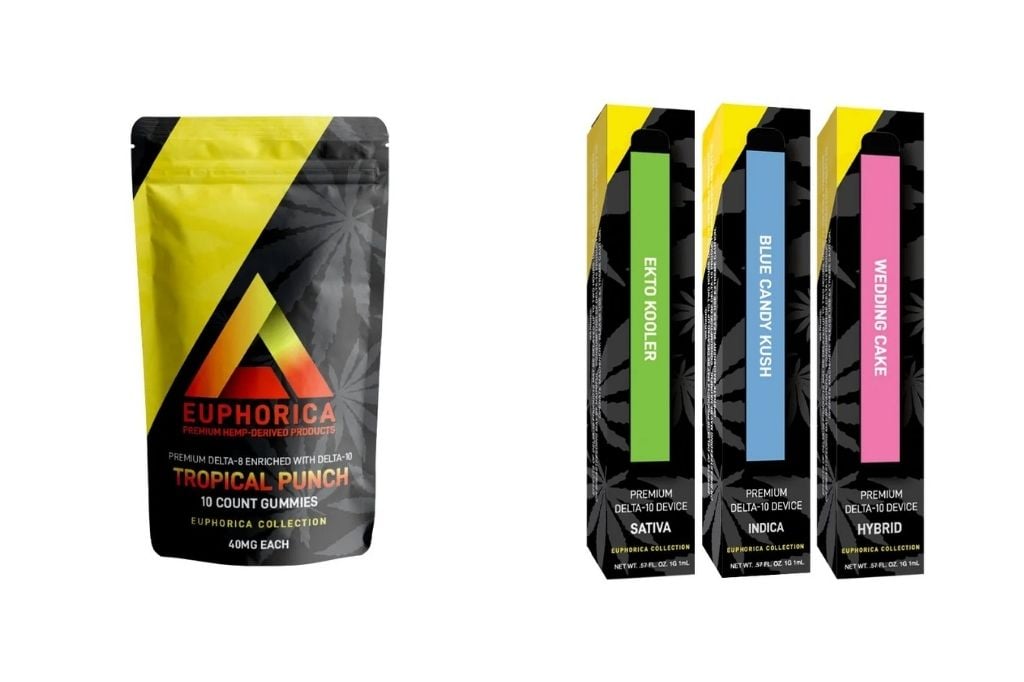
Delta 10 and Other Novel Cannabinoids
Delta 8’s popularity on the market has spurred the exploration and extraction of other cannabinoids from hemp plants. The unregulated cannabis industry has begun extracting delta 10 THC, a similar compound to delta 8. Both forms of THC are created by extracting CBD from legally grown hemp and processing the CBD into a delta compound. Like delta 8, delta 10 is less potent than delta 9. However, delta 10 is much more difficult to extract.
Because delta 10 is expensive and time-consuming to extract, some companies have started selling products containing both delta 8 and 10. The rapid development of these new THC products is creating an exciting but legally complicated marketplace.
What are the effects of delta 8 THC?
Many people report positive effects from consuming delta 8, similar to the effects of THC products sold in regulated dispensaries, such as happiness, pain relief, the giggles, and the munchies. Delta 8 THC is a psychoactive substance and even though its THC content is very low, new cannabis consumers may experience more intense effects than those who regularly consume CBD and THC products.
Is delta 8 legal in the United States?
In 2018, the U.S. Congress passed a bill that made delta 8 nationally legal, but some states did not adopt the specific language. Few state laws address delta 8 explicitly, and in 11 states, delta 8 is illegal. The federal legal status of this cannabinoid also may be subject to change as the Drug Enforcement Agency (DEA) pushes for its Schedule I classification.
What is the difference between delta 8 and delta 9?
Both forms of THC are similar in chemical structure, and they are both psychoactive compounds. Delta 8 has much lower THC content than delta 9, which is why it is legal to buy and sell in some states without legalized recreational marijuana. Delta 8 is unregulated by the government, while delta 9 is subject to quality testing before it is sold on dispensary shelves.


